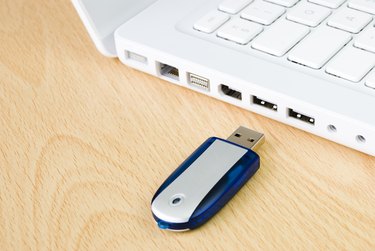
A USB port on a computer is a small port that allows a variety of USB compatible devices to be connected to it. Some examples of devices that connect to a USB port include printers, computer mice, keyboards, MP3 players and external hard drives. The majority of computers feature at least one USB port with many containing multiple USB ports.
Size
Video of the Day
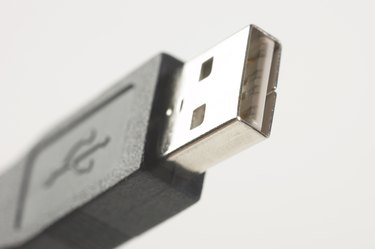
A USB port is around a 1/4 inch high and about 1/2 inch in length. This can vary slightly based on the design of the computer casing and the placement of the USB port itself. For example, the dimension may be reversed if the USB port is positioned lengthwise or at another angle.
Video of the Day
Location
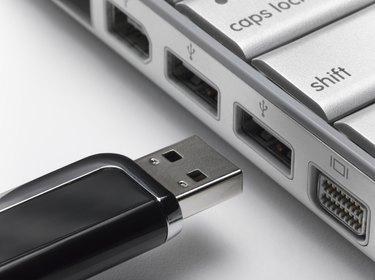
The location of the USB port on the computer's casing and frame can determine in part what the USB port actually looks like to the user. Some computers have USB ports that are inset into the frame with the casing partially covering them or the covering extending out beyond the port. This is common on laptops.
Desktop computers often have the USB ports located on the back end of the computer with the other ports. The ports may be placed vertically or horizontally on the back of the computer. Some computers have their USB ports located on the front of the computer and these may be positioned in such a way that the port is pointing downward and partially concealed by the casing.
Color and Design
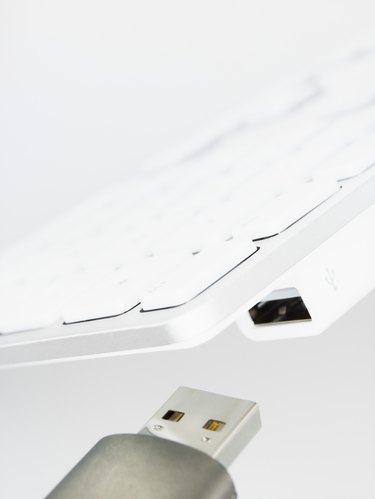
The actual USB connection inside the port is visible by looking directly into the port. Most USB ports have a thin white piece that sits in the middle of the USB port surrounded by open space and finally by a silver or black surface around the edges. Also, there may be gold or silver metal lines visible inside the port. The colors of the components inside the port can vary depending on the company that produced the USB port.
Visibility
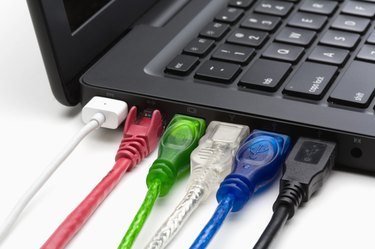
A USB port in use will be barely visible to the user due to the device connected to the USB port. Depending on the size and shape of the device's USB connector, the connector's casing may actually overlap the USB port's dimensions making the port unviewable.
The device connector goes into the port and clicks into place filling up the inside of the USB port. Sometimes a small gap is visible between the computer casing and the USB device's connector casing. Depending on the physical orientation of the USB port on the computer frame, the device's connector may be turned sideways or upside down.
Misconceptions
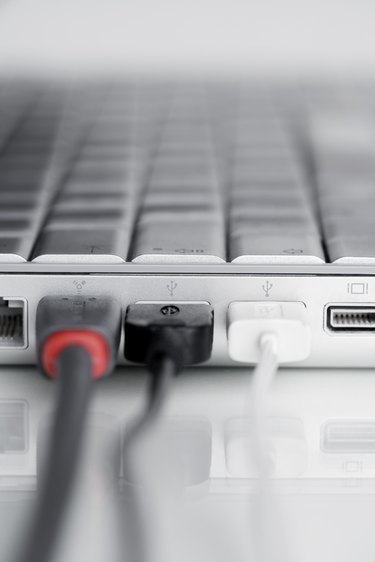
Similar-looking ports such as firewire, ethernet and digital video out ports can lead to accidental attempts to connect a USB device to them. The same can happen with other devices that have connectors similar to USB ports. Also, on some laptops the power supply connector is rectangular in shape with the power port looking similar to the USB port.